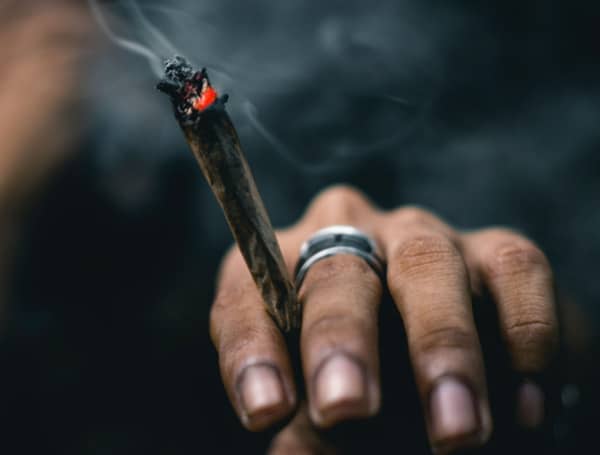As marijuana legalization continues to spread across the globe, a growing body of research has shed light on a concerning trend: the link between teenage cannabis use and the development of psychotic disorders.
A recent study published in the prestigious journal Psychological Medicine has uncovered a startling revelation: teenagers who used cannabis within the last year had an 11-fold higher risk of developing a psychotic disorder compared to their non-using peers.
When the analysis was narrowed down to emergency room visits and hospitalizations, the risk skyrocketed to a staggering 27-fold increase.
Read: Ads Launched For Florida Marijuana Amendment
“When I see youths with psychotic symptoms, they’re almost always using lots of cannabis,” said Dr. Leslie Hulvershorn, a child psychiatrist and chair of the psychiatry department at Indiana University, told NBC News. “It would be unusual to see someone present with psychotic symptoms to a hospital and not have smoked cannabis.”
While the current study did not specifically examine the impact of marijuana potency, previous research has found that the use of higher-potency cannabis products is linked to an increased risk of mental health disorders, including schizophrenia, anxiety, and depression.
This is a crucial consideration, as the marijuana landscape has evolved significantly in recent years, with the proliferation of concentrates, edibles, and other high-THC formulations that can deliver a more potent psychoactive experience. As these products become more widely available, the potential for adverse mental health consequences among young users is a growing concern.
The Biden administration’s recent move to potentially reschedule marijuana from Schedule I to the less dangerous Schedule III acknowledges the potential medical benefits of the substance at the federal level. However, this shift in policy also raises questions about the potential public health implications, particularly for vulnerable populations like adolescents.
Read: Trulieve Coughs Up Nearly $50M For Florida Marijuana Initiative
With cannabis now legal for recreational use in 24 states, the normalization of marijuana use among high school students remains a significant issue. According to the 2023 Monitoring the Future Survey, nearly 1 in 3 12th graders reported using marijuana in the previous year.
The findings from this latest study, combined with the growing body of research on the topic, underscore the urgent need for targeted interventions and public health initiatives to address the risks associated with teenage cannabis use.
As lead author of the study, Andre McDonald, states, “If we can somehow ask teens to delay their use until their brain has developed a little further, I think that would be good for public health.”
This sentiment is echoed by experts who emphasize the importance of educating young people about the potential dangers and encouraging them to postpone cannabis experimentation until their cognitive faculties are more fully developed.
It is essential to note that while the study found a striking association between teenage cannabis use and the development of psychotic disorders, it did not directly prove that marijuana is the causal factor. As with any observational research, there is the possibility that individuals predisposed to psychosis may have also been more inclined to use cannabis.
Read: Florida Gov. DeSantis Calls Marijuana And Abortion Amendments “Radical”
The implications of this research extend beyond the individual level, as the development of psychotic disorders can have far-reaching consequences for both the affected youth and society as a whole. These debilitating conditions can significantly impair an individual’s ability to function, leading to disruptions in education, employment, and social relationships.
Moreover, the economic and societal costs associated with the treatment and management of psychotic disorders are substantial. By addressing the potential risks of teenage cannabis use, public health officials and policymakers can take proactive steps to mitigate these broader impacts and safeguard the well-being of young people.
Help support the Tampa Free Press by making any small donation by clicking here.
Android Users, Click To Download The Tampa Free Press App And Never Miss A Story. Follow Us On Facebook and Twitter. Sign up for our free newsletter.

